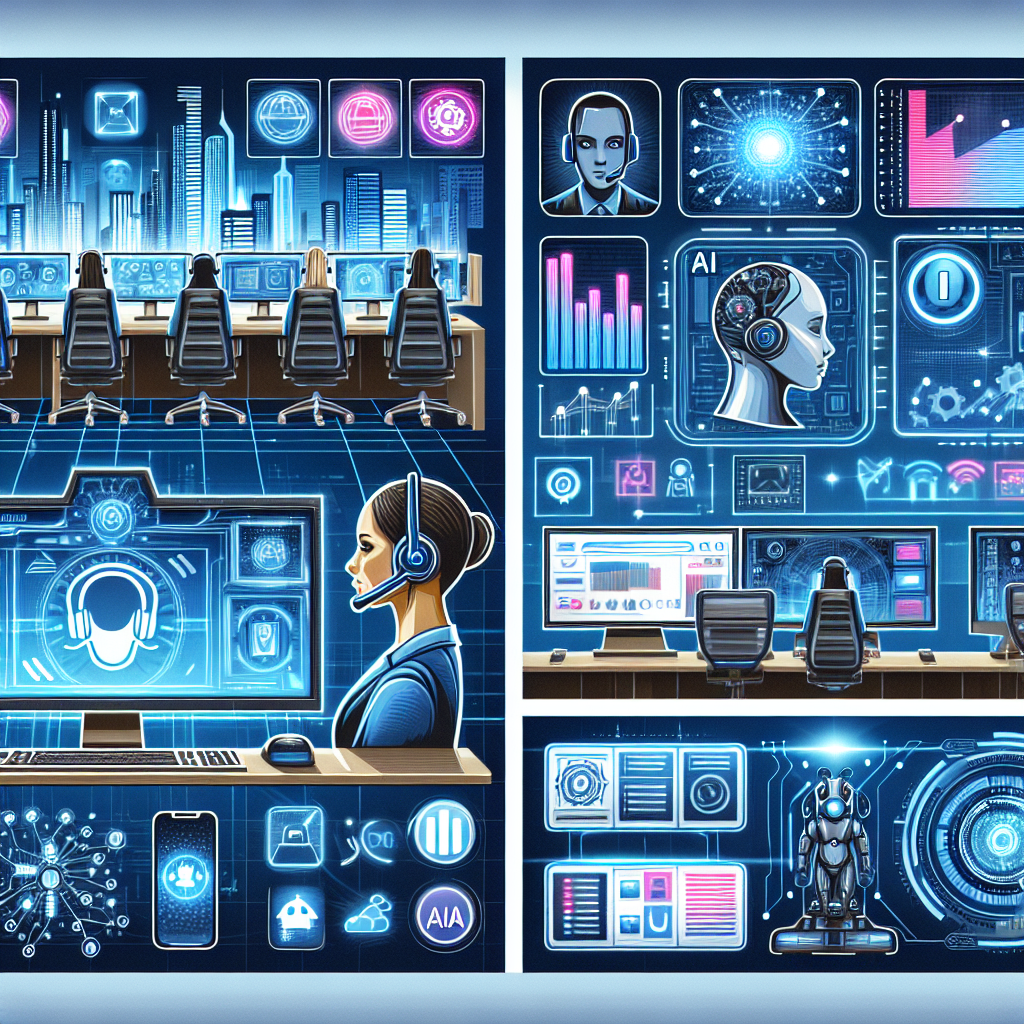In today’s digital age, customers’ expectations for quick and efficient service have never been higher. With the rise of artificial intelligence (AI), businesses are finding new ways to meet these demands and provide exceptional customer support and engagement. AI technology is revolutionizing the customer service industry by streamlining processes, improving response times, and personalizing the customer experience.
AI-powered chatbots are becoming increasingly popular tools for businesses to interact with their customers. These chatbots use natural language processing and machine learning algorithms to understand and respond to customer inquiries in real-time. They can handle a wide range of tasks, from answering basic questions to providing personalized recommendations and troubleshooting technical issues. By automating these routine tasks, businesses can free up their human agents to focus on more complex and high-value interactions.
One of the key benefits of AI-powered chatbots is their ability to provide 24/7 support. Customers expect to receive assistance at any time of day or night, and chatbots can be available around the clock to answer questions and provide solutions. This not only improves customer satisfaction but also helps businesses to reduce response times and increase efficiency.
AI technology also enables businesses to personalize the customer experience by analyzing data and creating tailored recommendations. By tracking customer interactions and behavior, AI can predict customer needs and preferences, allowing businesses to offer targeted suggestions and promotions. This personalized approach helps to build stronger relationships with customers and increase customer loyalty.
Another advantage of AI in customer service is its ability to handle large volumes of inquiries simultaneously. Human agents are limited in the number of conversations they can manage at once, but chatbots can interact with multiple customers simultaneously without compromising the quality of service. This scalability allows businesses to efficiently manage high volumes of inquiries during peak times or promotional events.
AI can also improve the quality of customer service by providing accurate and consistent responses. Chatbots are programmed with a knowledge base that contains information on products, services, policies, and procedures. This ensures that customers receive accurate information every time they interact with the chatbot, reducing the risk of errors and misunderstandings. Additionally, AI can continuously learn from customer interactions and improve its responses over time, leading to a more effective and reliable customer service experience.
In addition to chatbots, AI technology is also being used in other customer service applications, such as predictive analytics and sentiment analysis. Predictive analytics uses historical data to forecast future trends and customer behavior, allowing businesses to anticipate customer needs and optimize their services accordingly. Sentiment analysis, on the other hand, analyzes customer feedback and social media posts to gauge customer satisfaction and identify areas for improvement. By leveraging these advanced analytics tools, businesses can gain valuable insights into their customers’ preferences and improve their overall customer service strategy.
While AI has the potential to transform the customer service industry, there are still some challenges and limitations to consider. One of the main concerns is the potential for AI to replace human agents completely. While chatbots can handle many routine tasks, they lack the empathy and emotional intelligence that human agents possess. Some customers may prefer speaking to a human agent for complex or sensitive issues, so it’s important for businesses to find the right balance between AI and human support.
Another challenge is ensuring the accuracy and reliability of AI-powered systems. Chatbots rely on algorithms and machine learning models to understand and respond to customer inquiries, but these systems are not infallible. There is a risk of errors or misinterpretations, especially when dealing with complex or ambiguous customer queries. Businesses need to continuously monitor and refine their AI systems to ensure they are providing accurate and relevant information to customers.
Despite these challenges, the benefits of AI in customer service far outweigh the drawbacks. By leveraging AI technology, businesses can improve their efficiency, personalize the customer experience, and build stronger relationships with their customers. As AI continues to evolve and advance, the future of customer service looks promising, with endless possibilities for innovation and improvement.
FAQs:
Q: Can AI-powered chatbots handle all customer inquiries effectively?
A: While AI-powered chatbots are capable of handling a wide range of customer inquiries, there may be some complex or sensitive issues that require human intervention. It’s important for businesses to provide a seamless transition between chatbots and human agents to ensure that all customer inquiries are addressed appropriately.
Q: How can businesses ensure the accuracy and reliability of their AI-powered systems?
A: Businesses should regularly monitor and analyze the performance of their AI systems to identify any errors or inconsistencies. They should also provide ongoing training and updates to improve the accuracy of the systems and ensure they are up-to-date with the latest information.
Q: Will AI replace human agents in customer service?
A: While AI technology can automate many routine tasks and inquiries, it is unlikely to completely replace human agents. Human agents possess unique skills such as empathy and emotional intelligence that are essential for handling complex or sensitive customer issues. Businesses should aim to strike a balance between AI and human support to provide the best possible customer service experience.

